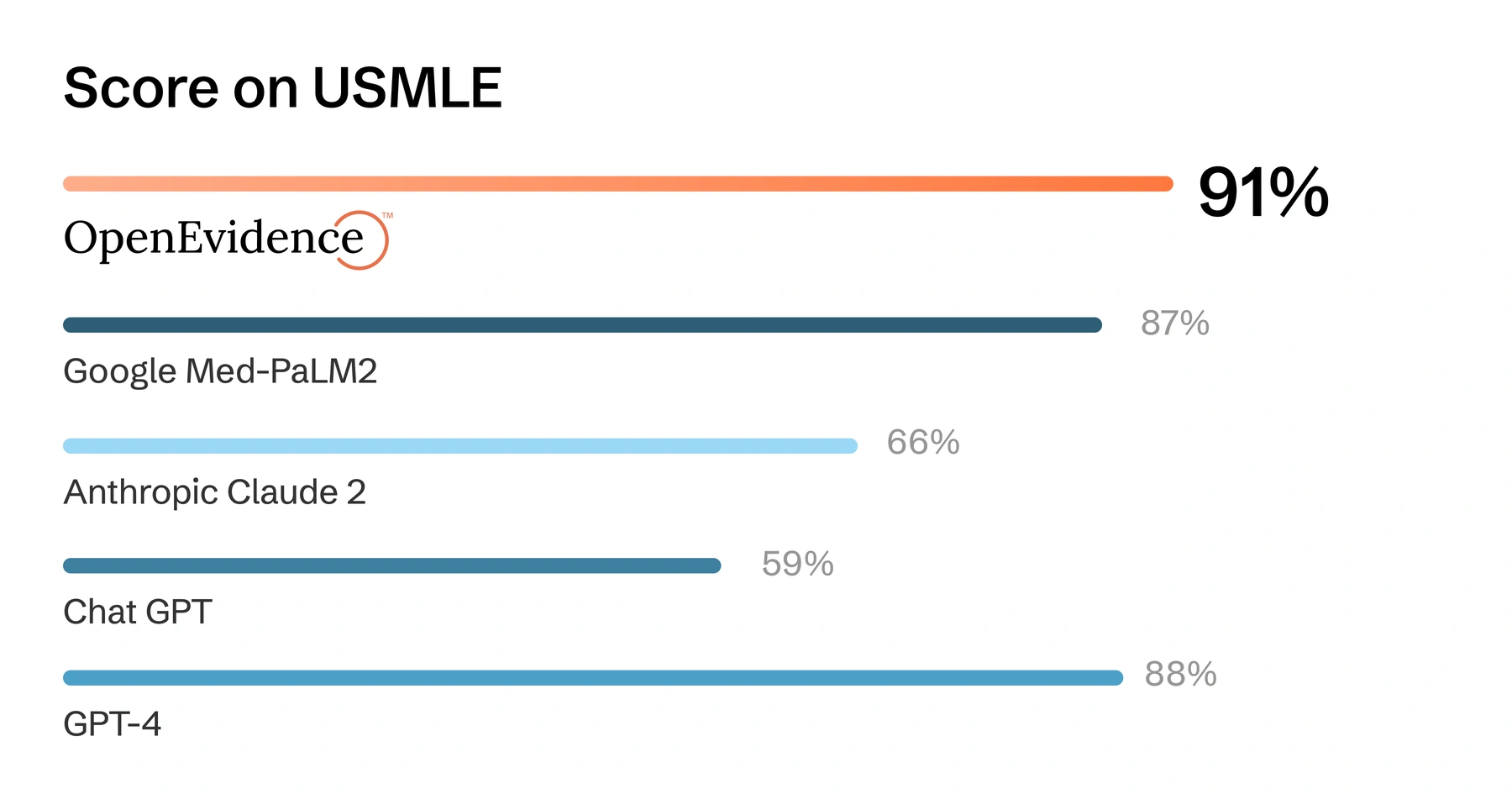
OpenEvidence AI is changing how doctors access and use clinical research. Learn what it is, how it works, real user feedback, and CoreGuideAI’s expert verdict on whether it’s truly worth it.
What is OpenEvidence AI?
OpenEvidence AI is a fast-growing platform built for U.S. doctors. It gives them quick access to reliable clinical research. Unlike general AI tools like ChatGPT, this one is designed only for healthcare use. It offers summaries, decision support, and evidence-based answers in just a few seconds.
Daniel Nadler founded OpenEvidence in 2021. He’s also the mind behind Kensho, a finance AI startup that S&P Global later bought. Nadler built OpenEvidence to solve a major issue in healthcare—doctors have too much information but not enough time to find what they need.
His goal was to create a tool that pulls research directly from trusted sources like NEJM, JAMA, and ClinicalKey. This way, doctors can get answers during patient care, not just when they’re on break.
Key Features of OpenEvidence AI
OpenEvidence AI isn’t just a search engine. It acts as a real-time clinical assistant. Here’s what it can do:
1. DeepConsult
This feature builds complete research reports from just one prompt. It helps doctors avoid long hours of searching.
2. Instant Citations
Every response includes sources, so doctors can check the facts for themselves.
3. Drug Interaction Warnings
It checks for risky drug combinations immediately.
4. Chart Completion
It helps finish medical charts faster, which is a common source of doctor fatigue.
5. EHR Integration
The platform works inside most Electronic Health Record systems, making it easy to use during patient visits.
6. Free for Verified U.S. Doctors
Any U.S. doctor can access the platform for free after they confirm their identity.
OpenEvidence AI in Numbers
OpenEvidence AI has seen huge growth in a short time. These numbers show its impact:
- Over 40% of U.S. doctors now use it
- 10,000+ hospitals and clinics have adopted the platform
- Monthly consultations jumped from 358,000 in 2024 to 8.5 million in 2025
- It scored above 90% on the U.S. Medical Licensing Exam (USMLE), higher than ChatGPT (59%) and Google’s Med-PaLM 2 (86%)
- Raised $210 million in Series B funding in July 2025
- The current valuation stands at $3.5 billion, with backers like Sequoia, Google Ventures, Kleiner Perkins, and Thrive Capital
What Real Users Are Saying
1. Reddit (r/medicine)
“It’s been a big help during rounds. Fast and clear. It’s made our discussions more informed.”
🔗 Link
2. Quora (Internal Medicine Doctor)
“I use it to double-check decisions. It’s not perfect, but definitely helpful and time-saving.”
🔗 Link
3. Reddit (r/healthIT)
“We saw some old guidelines appear once. But their support was responsive and explained the fix. Still better than most tools we’ve tried.”
🔗 Link
These reviews show real-world trust—mixed with realistic feedback that no AI tool is perfect.
Who Should Use OpenEvidence AI?
This tool is made for licensed doctors in the U.S. It’s not meant for patients, students, or general users. It’s best for:
- Hospital doctors and urgent care providers
- Residents and medical interns
- Specialists working with rare or complicated cases
- Physicians dealing with multiple health issues at once
Since it works inside EHR systems and provides source links, it’s ideal for use during time-sensitive decisions.
CoreGuideAI’s Review: Is It Worth It?
At CoreGuideAI, we review tools across business, tech, and healthcare. Here’s what we found after testing OpenEvidence in real-world settings.
What We Liked
- Accurate Answers: It gives solid information backed by trusted sources like NEJM and JAMA.
- Fast Results: Doctors get answers in under 10 seconds.
- Simple Design: The interface is easy to use and fits well into hospital workflows.
- Free Access: Being free for verified doctors is a big plus.
- Proven Performance: Its test scores and growth numbers show it works well at scale.
What We’re Cautious About
- Mistakes Can Happen: Like other AI tools, it may give wrong answers when data is weak.
- Outdated Info: Some advice, like on ME/CFS, needs to be updated.
- Not for Beginners: Non-doctors may misuse it or trust it too much without medical knowledge.
Final Verdict by CoreGuideAI
OpenEvidence AI is one of the best tools available for doctors today. But it’s not a cure-all.
If you’re a licensed clinician, it can save you time, reduce stress, and improve how you make decisions. Its growth proves that doctors find it useful.
But you still need to double-check the information it gives. It’s a support tool—not a replacement for medical experience.
| Feature | Rating (out of 5) |
|---|---|
| Ease of Use | ⭐⭐⭐⭐⭐ |
| Speed | ⭐⭐⭐⭐⭐ |
| Accuracy | ⭐⭐⭐⭐⭐ |
| Usefulness | ⭐⭐⭐⭐⭐ |
| Risk of Errors | ⭐⭐⭐ |
Rating by CoreGuideAI: ★★★★☆ (4.5/5)
“Strong and trustworthy—but always double-check the facts.”
Pingback: AI in Medical Research: A Human Story of Discovery - coreguideai
Pingback: The Race to Build the Best Telemedicine Apps Development Company - coreguideai